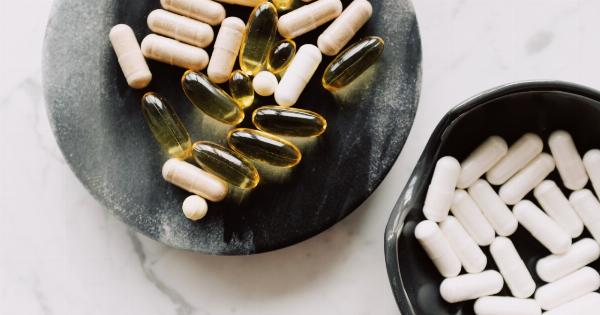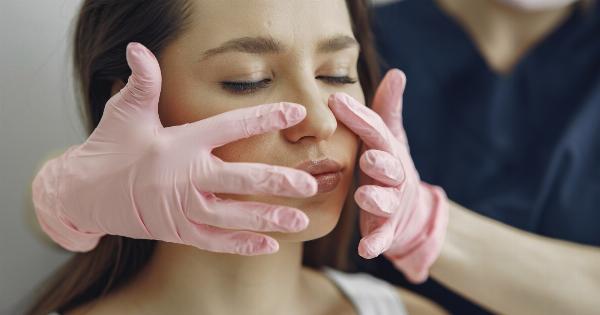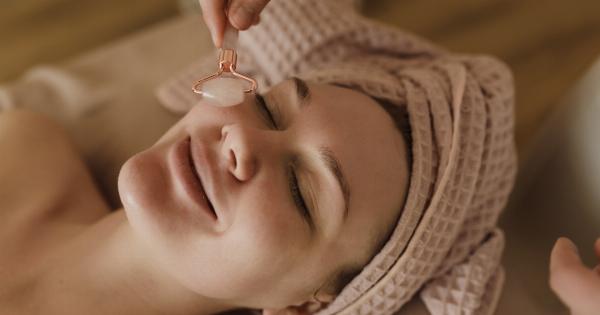Acne is a common skin condition that affects millions of people worldwide. It occurs when hair follicles become clogged with oil, dead skin cells, and bacteria. This leads to the formation of pimples, blackheads, whiteheads, and even cysts.
Acne can occur on various parts of the body, most commonly on the face, chest, back, and shoulders. It can be frustrating and have a significant impact on a person’s self-esteem, but fortunately, there are dermatologist-approved solutions that can help clear up acne fast.
The Importance of a Dermatologist
When dealing with acne, it’s essential to consult a dermatologist.
These medical professionals specialize in the diagnosis and treatment of skin conditions and can provide valuable guidance on the most effective solutions for your specific acne concerns. Dermatologists have access to the latest research, technologies, and medications, ensuring that you receive the best care possible. They can develop a personalized treatment plan tailored to your skin type, severity of acne, and lifestyle.
Cleansing your Skin
The first step in any acne treatment regimen is proper cleansing. Dermatologists recommend using a gentle cleanser to wash your face twice daily. Look for products that are non-comedogenic, meaning they won’t clog pores.
Avoid harsh soaps or scrubs that can irritate the skin and make acne worse.
Topical Medications
Topical medications are effective in treating mild to moderate acne. They come in different forms, such as creams, gels, lotions, or pads, and each has its specific purpose. Some popular dermatologist-approved topical treatments include:.
1. Benzoyl Peroxide
Benzoyl peroxide is a widely used acne treatment that kills the bacteria responsible for acne breakouts. It also helps to unclog pores and reduce inflammation.
Dermatologists often recommend starting with a lower concentration (2.5% or 5%) to minimize skin irritation.
2. Salicylic Acid
Salicylic acid works by exfoliating the skin and unclogging pores, resulting in reduced acne breakouts. It also has anti-inflammatory properties. Dermatologists may recommend it as a part of your daily skincare routine or as a spot treatment.
3. Retinoids
Retinoids, such as adapalene, tretinoin, or tazarotene, are derivatives of vitamin A that help prevent clogged pores, reduce inflammation, and promote cell turnover.
They can be highly effective in treating acne but may cause skin dryness or increased sensitivity to the sun. Dermatologists often recommend starting with a lower concentration and gradually increasing as tolerated.
4. Antibiotics
Topical antibiotics, such as clindamycin or erythromycin, are prescribed by dermatologists to kill acne-causing bacteria and reduce inflammation. They are often used in combination with other acne treatments to prevent antibiotic resistance.
Oral Medications
In severe cases of acne or when topical treatments do not provide sufficient results, dermatologists may prescribe oral medications. These medications work from within the body to target the underlying causes of acne.
Some commonly prescribed oral medications for acne include:.
1. Oral Antibiotics
Oral antibiotics, such as doxycycline or minocycline, are used to reduce inflammation and kill acne-causing bacteria. They are typically prescribed for a short period to avoid antibiotic resistance and are often combined with topical treatments.
2. Hormonal Therapy
For females with hormonal acne, dermatologists may recommend hormonal therapy. Oral contraceptives (birth control pills) containing specific hormones can help regulate androgen levels, reducing acne breakouts.
It’s essential to discuss the potential side effects and benefits with your dermatologist before starting this treatment.
3. Isotretinoin
Isotretinoin, also known as Accutane, is a potent oral medication prescribed for severe and persistent acne. It significantly reduces oil production, prevents clogged pores, and decreases inflammation.
Isotretinoin has potential side effects and requires close monitoring, so it should only be taken under the supervision of a dermatologist.
In-Office Treatments
In addition to topical and oral medications, dermatologists offer various in-office treatments to tackle acne. These procedures are typically performed by a dermatologist or a trained aesthetician and may include:.
1. Chemical Peels
Chemical peels involve the application of a chemical solution to exfoliate the skin gently. They help remove dead skin cells, unclog pores, and improve the appearance of acne scars.
Chemical peels can be customized based on the severity of acne and desired results.
2. Laser and Light Therapy
Laser and light therapies use specific wavelengths to target bacteria, reduce oil production, and promote clear skin. These treatments can effectively treat acne and also help minimize acne scars. Multiple sessions may be required for optimal results.
3. Extraction of Whiteheads and Blackheads
Dermatologists can perform extractions to remove whiteheads and blackheads manually. They use specialized tools to gently extract the contents of clogged pores, reducing the chances of infection and promoting faster healing.
4. Corticosteroid Injections
For large, painful acne cysts, dermatologists may administer corticosteroid injections directly into the lesions. These injections swiftly reduce inflammation and help the cysts heal faster.
Lifestyle and Skincare Tips
In addition to dermatologist-approved treatments, certain lifestyle and skincare practices can help improve acne:.
1. Cleanse gently:
Wash your face with a gentle cleanser twice daily, using lukewarm water. Avoid scrubbing harshly, as it can irritate the skin and worsen acne.
2. Don’t pick or pop:
Avoid picking, popping, or squeezing acne lesions, as it can lead to scarring and further inflammation.
3. Avoid excessive makeup:
Choose non-comedogenic, oil-free makeup products that won’t clog pores. Remove your makeup before bedtime to allow your skin to breathe.
4. Protect your skin from the sun:
Use a broad-spectrum sunscreen with an SPF of 30 or higher to protect your skin from harmful UV rays. Sun exposure can worsen acne and cause post-inflammatory hyperpigmentation.
5. Hydrate and eat a balanced diet:
Stay hydrated by drinking plenty of water and follow a balanced diet rich in fruits, vegetables, and whole grains. Certain foods, such as dairy products and high-glycemic-index foods, may worsen acne in some individuals.
Conclusion
Dealing with acne can be challenging, but with the help of dermatologist-approved solutions, you can clear up your skin fast.
Whether through topical or oral medications, in-office treatments, or adopting healthy skincare practices, a dermatologist can guide you towards effective acne management. Remember, consistency in your treatment regimen and ongoing communication with your dermatologist are key to achieving and maintaining clear, healthy skin.






























